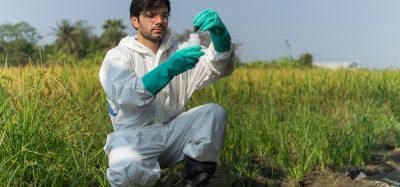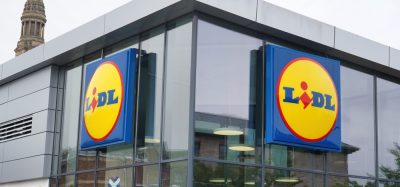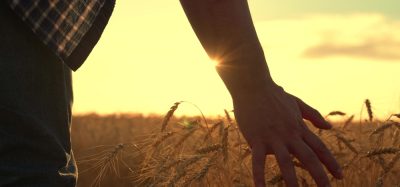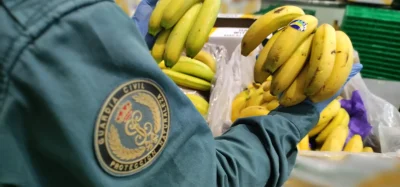Driving towards a sustainable future of food
Posted: 10 February 2020 | Mercedes Groba | No comments yet
Mercedes Groba, Innovation Programme Manager at the European Institute of Innovation and Technology (EIT) in Food, discusses the innovative solutions that will play an integral role in addressing the challenges of sustainability.
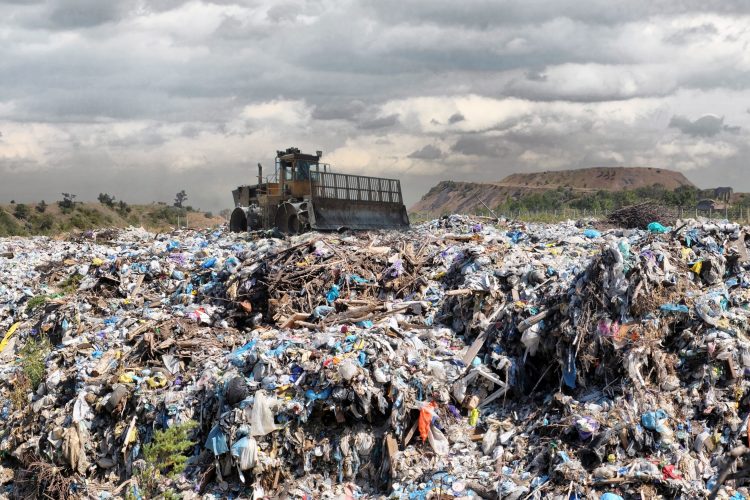

The quest for sustainable practices in all aspects of human activities is one of the major objectives within the EU and worldwide. The need for a sustainable food system is particularly important as it contributes to 30 percent of greenhouse gas emissions (GHG)1 and 70 percent of freshwater withdrawals.2 Not to mention that a third of all food globally is lost or wasted.3
The European Institute of Innovation and Technology (EIT) Food is working hard to overcome these challenges and create a healthier, more trusted food system. EIT is Europe’s leading food innovation initiative, with a mission to create a sustainable and future-proof food sector by building an inclusive and innovative community where the consumer is actively involved.
Technological innovation can overcome sustainability challenges
In the primary food sector, there is a particular need to increase sustainable practices to restrain emission of GHGs, while simultaneously increasing yield for the growing human population, which is expected to reach 10 billion by 2050.4
Improving European farmers´ competitiveness through technology transfer and innovation integration is essential to address the challenges of both rising GHGs and an increasing population. One EIT Food project that is addressing these challenges is the ‘Wheat Cultivars’ project which is working to increase wheat grain quality and yield5 for sustainable wheat production. Innovative technologies, including grain quantity analytical devices, together with robotics and artificial intelligence, can help manage soil health – especially for regions that are already living with the effects of climate change. Also, as wheat is included in many people’s diets, improving its yield and quality is important for feeding more people in the future. This is just one project that supports the need for a future-proof food system that sustainably produces high-quality and affordable food.
How a circular food system can overcome challenges of sustainability
In our pursuit for a sustainable future of food, another challenge we face is wasting less food6 in both production and consumption. This involves shifting away from our current linear model of ‘make-use-dispose’ to a circular system in which resources are used optimally to reduce waste. A circular bioeconomy that reuses resources rather than wasting them is especially important for the reduction of food waste during its production. Reutilising and valorising side and waste-streams can prevent food going to waste by allowing nutrients to be recycled.
An EIT Food project is developing a digital marketplace for side streams7 which enables this very process to happen. A platform ‘Circado’ has been created to matchmake suppliers, who have a side stream available, to buyers who need them. Still in its early stages, this platform has huge potential to reduce industrial waste while promoting a circular food system.
The need for sustainable aquaculture
Another important sustainability challenge in food production is finding sustainable alternatives for livestock feed that ensure animal health and welfare. For example, in aquaculture there is increasing concern8 around the sustainability of EU salmonid aquaculture feed supply chains. Trends indicate a move away from fishmeal and soy as protein sources, towards
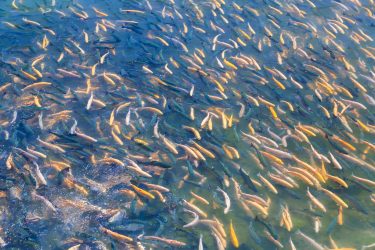

‘functional’ feeds that enhance fish health and welfare. EIT Food’s Metamorphosis project9 addresses these issues by enhancing the biological value of insect feed for the EU aquaculture market, using a proprietary microbiological processing technology that targets fish health and welfare in addition to nutritional outcomes. For example, insect-based protein meal has been demonstrated to be a promising, sustainable protein alternative and this project is helping insect meal to become a commercially viable alternative. As a result, this EIT Food project is overcoming the need for sustainability in aquaculture by identifying next generation functional aquaculture feeds.
Food innovation is a process, not an end state
On the path to overcoming food system challenges, we must remember that innovative solutions are not goals, but rather part of the process in overcoming evolving sustainability challenges. We need to ensure that an innovative solution is not restricted to an invention or a technological innovation, but instead encourages the creation of environments for creative approaches in policy, financing, partnerships, processes and the use of data. This will allow us to not only to understand current and future issues, but also increase transparency throughout the food value chain. Above all, innovative solutions should increase technical capacities, attract new investments, open new markets and enhance productivity and commitment to sustainability.
Achieving innovation requires everyone working together
We know the need for a sustainable food system is paramount and the only way to create and speed up sustainable innovation is to collaborate openly and actively with all the players across the food value chain. By collaborating to achieve a common goal, such as feeding a growing population, reducing GHGs, or achieving a circular bioeconomy, companies can build stronger, trusted and lasting relationships with business partners, customers, nongovernmental organisations, consumers, authorities or other stakeholders.
We need to create systemic change by working collaboratively with all the actors of the food system to change the dynamic of an entire sector. We need to demonstrate what is possible, so we can accelerate changes in both technology and business practices, to overcome the challenges that ultimately affect us all.
Let’s be excited about food system innovation
Despite the serious sustainability challenges we face in the food industry, I am hopeful for the future. I am looking forward to seeing how emerging innovation solutions scale and upgrade for the market. With this, it is especially important that we consider the role of SMEs as they might enable effective knowledge sharing between stakeholders, such as local communities.
It is important that all stakeholders support our quest to find healthy and sustainable solutions for our society. At EIT Food, we are connecting these stakeholders to enable this to happen. After all, we believe that we are all responsible for, and connected to, the food that we eat, so we all need to work together to improve it!
Attend Food Integrity 2020
To learn more about innovative solutions to sustainability challenges and be involved in the discussion, attend New Food’s Food Integrity 2020 conference where I will be moderating the panel discussion ‘Driving Towards a Sustainable Future for Food’ with key experts in this field.
Food Integrity takes place in London on March 18-19. For more information click here.
Don’t miss out, book here today.
For more information about the EIT Food projects in this article, please see below:
- Wheat cultivars project – click here
- Digital marketplace for waste streams project – click here
- Metamorphosis project – click here
References
- https://sustainabledevelopment.un.org/content/documents/881annurev.pdf
- http://www.fao.org/aquastat/en/overview/methodology/water-use
- http://www.fao.org/save-food/resources/keyfindings/en/
- https://www.un.org/development/desa/en/news/population/world-population-prospects-2017.html
- https://www.eitfood.eu/innovation/projects/interplay-between-different-wheat-cultivars-and-novel-biostimulants-to-increase…
- http://www.fao.org/save-food/resources/keyfindings/en/
- https://www.eitfood.eu/innovation/projects/eit-food-digital-marketplace-for-side-streams
- http://www.fao.org/3/i1140e/i1140e01.pdf
- https://www.eitfood.eu/innovation/projects/metamorphosis-enhanced-insect-protein-for-aquaculture-2019
About the author
Mercedes Groba is an accomplished Innovation Programme Manager at the European Institute of Innovation & Technology in Food (EIT Food).
At EIT Food, Mercedes provides strategic vision and guidance for food system innovation and sustainable resource management, leading and delivering innovation at both a European and international level.
She has collaborated closely with national and European organisations and institutions, including the University of Oxford. As part of her 20-year career working in innovation, she has worked in food safety and quality, and with farmers on the importance of sustainability and environmental impact.
Mercedes holds an MA that combines Nutrition and Agricultural Engineering focusing on agri-food industries, and has achieved certificates in Open Innovation and Design and Management of European programmes.
Above all, she is passionate about driving real change towards a better world for all.
*The author would like to thank Laura Elphick, Communications and Engagement Officer at EIT Food, for her valuable contribution.
Related topics
Environment, Food Waste, Proteins & alternative proteins, Supply chain, Sustainability




